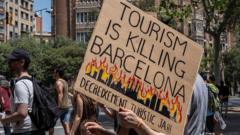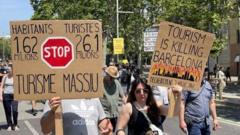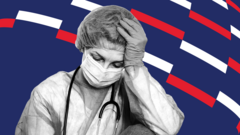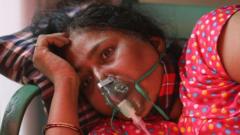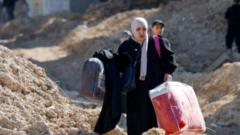Belcastro's Mayor Antonio Torchia has issued a decree sarcastically banning illness as a critique of the inadequate healthcare system in the southern Italian region of Calabria, where medical access is severely limited.
Italian Mayor Issues Humorous Ban on Illness Amid Healthcare Crisis

Italian Mayor Issues Humorous Ban on Illness Amid Healthcare Crisis
A small village in Calabria, Italy, has jokingly prohibited residents from becoming sick to highlight serious healthcare shortcomings.
In a light-hearted but poignant gesture, the mayor of Belcastro, a quaint village with a population of about 1,200 in southern Italy's Calabria region, has humorously prohibited residents from falling seriously ill. The decree, issued by Mayor Antonio Torchia, playfully instructs villagers to "avoid contracting any illness that may require emergency medical assistance."
This unusual proclamation aims to draw attention to the dire state of the local healthcare system. Torchia openly acknowledged that the decision was meant to be a "humorous provocation" but insisted that it was more effective than previous urgent communications sent to regional authorities concerning healthcare inadequacies.
Belcastro faces significant challenges in accessing emergency care, as the nearest Accident & Emergency (A&E) department is situated over 45 kilometers (about 28 miles) away. The pathway to the facility is fraught with obstacles, including a road where speed limits cap at 30 kilometers per hour (approximately 18 miles per hour). Furthermore, the village's only on-call doctor is available only sporadically and does not offer services during weekends, holidays, or after hours.
Torcia noted that it is alarming for residents to be aware that their chances of receiving medical assistance lie in their ability to navigate these daunting roads within a critical timeframe. He expressed that the dangerous conditions of the roads could pose a greater threat than any illness itself.
The mayor's decree also includes directives urging residents not to partake in potentially harmful activities, discourage regular outings, limit travel, and avoid sports; instead, they are encouraged to rest more often. It remains unclear how these whimsical regulations would be enforced, if at all.
Calabria, the southernmost region of Italy, has long grappled with inefficiencies in its healthcare services, stemming from chronic political mismanagement and interference from organized crime groups. For nearly 15 years, the healthcare system has been under special administration by the central government, struggling with massive debts that have hindered the recruitment of medical personnel and the availability of hospital beds.
The situation has resulted in many locals seeking medical care in other regions, with reports indicating that an alarming eighteen hospitals have shut down since 2009. In a recent collaboration aimed at addressing physician shortages, Cuba has agreed to send 497 doctors to Calabria over the next three years, with regional authorities touting this initiative as a potential lifeline for the beleaguered healthcare facilities.
Locals have expressed support for Mayor Torchia's unorthodox approach, as they believe it effectively shines a spotlight on a pressing issue plaguing their community. One resident stated, "He has used a provocative decree to attract attention on a serious problem."






